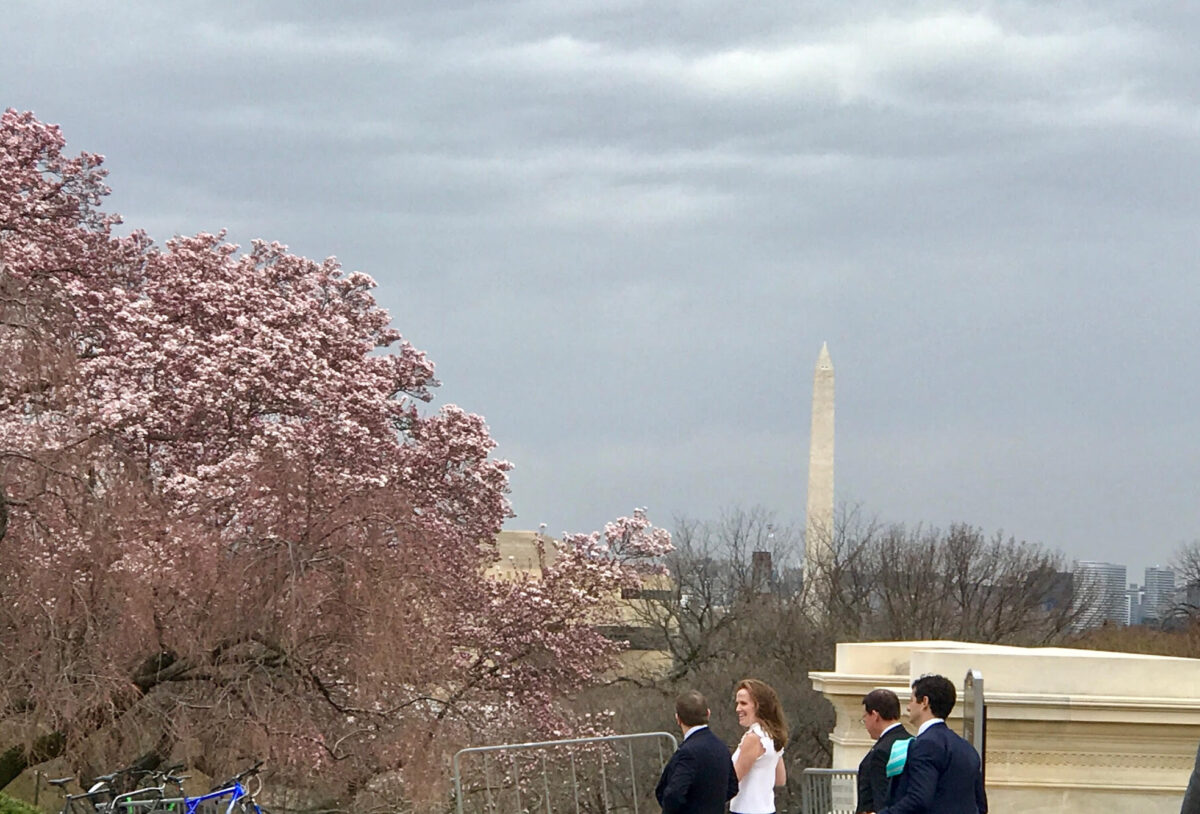Nevada’s Broadcasters Attend NAB, State Leadership,
Meetings with Nevada Congressional Delegation
Washington, D.C.
February 27-March2, 2017
Mary Beth Sewald/Adam Sandler
The Nevada delegation of broadcasters is home following the annual Washington, D.C. trip to fly the flag on behalf of the NVBA and its members.
It was an exceptionally productive trip this year, as our team met, not only with the Nevada Congressional Delegation, but also with NVBA lobbyists Hon. Jon Porter and The Porter Group team, Adam Sandler, Government Affairs experts from the NAB, NVBA’s Washington, D.C. legal counsel at Pillsbury, Winthrop, Shaw, Pittman and counterparts at NASBA.
The Nevada broadcasters attending this year were, NVBA Chair, KVVU FOX 5 GM, Todd Brown, NVBA Treasurer, and KTVN Ch. 2 GM Lawson Fox, Chair-elect, Entrevision GM,Viola Cody, Legislative Chair, and Lotus Radio South Tony Bonnici, , and Past Chair, Lotus Radio North, Dane Wilt.
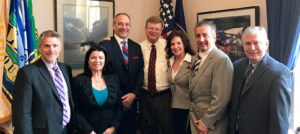
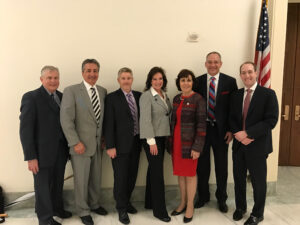

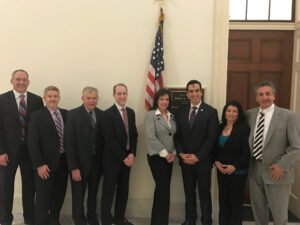
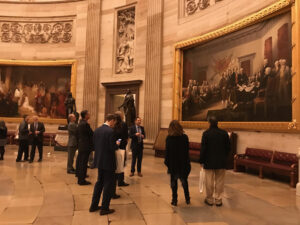
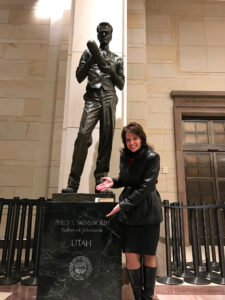
The below report is from Adam Sandler.
After a tumultuous election in which Nevada sent to Congress a new senator and two new representatives, our congressional delegation is hitting the ground running and already engaged on broadcast issues and ready to work with broadcasters.
Your broadcaster representatives discussed with members of Congress and staff the important issues that are likely to be taken up during the 115th Congress and spent time getting to know the new members of the congressional delegation. Among the issues discussed were proposed changes to the deductibility of advertising; the Local Radio Freedom Act and opposition to a radio performance tax; more flexibility and funding for stations to move after the incentive auction; and retransmission consent.
Perhaps the most consequential proposal in Washington to broadcasters is a change to the deductibility of advertising. Currently the cost of advertising is fully-deductible as an ordinary and necessary business expense for the year in which the cost was incurred. This tax treatment promotes economic growth and allows businesses to get their products and services in front of the community. Any change to the tax treatment of advertising hurts businesses and hurts the broadcast stations on which those businesses advertise. Broadcasters, however, aren’t fighting this battle alone. On the national, state, and local levels broadcasters are joining with chambers of commerce and pro-business coalitions to educate lawmakers on the dangerous effects of removing the advertising deduction.
In the 114th Congress, broadcasters gained the support of more than 250 members of Congress against any attempt to impose a performance tax on local radio stations. And, in the 115th Congress, broadcasters each day gain more cosponsors on the Local Radio Freedom Act. Though this is a perennial issue for broadcasters, the threat is no less real than it has been. Representative Mark Amodei (NV-2) is already a cosponsor of the Local Radio Freedom Act and we will work hard to gain the support of Nevada’s entire congressional delegation.
With the spectrum incentive auction set to end on March 30, all eyes have turned to the repack and relocation of TV stations that will be necessary to clear the spectrum bought by the forward auction winners. We won’t have a clear picture of the scope of the repack for a few weeks, but it looks likely that at least 1,100 television stations will be repacked. What we do know is this will cost more than the $1.75 billion Congress authorized for the TV Broadcaster Relocation Fund; in fact, it could cost a billion more dollars. Also complicating the repack is the 39-month (at the close of the auction broadcasters have three months to file construction permits and submit their reimbursement paperwork; the 36-month clock begins at the end of the three months) deadline the FCC placed on broadcasters to be up and running on their new channel assignments. Broadcasters, recognizing how expensive and technically challenging this repack will be, are working with Congress for more funding and flexibility in the deadline so no station is forced off the air.
Retransmission consent, which came under heavy fire under the last few congresses and FCC chairmen, seems now to be on solid footing. With Ajit Pai in the FCC chairman’s seat and what looks to be a Republican congress that tends toward deregulation, it’s unlikely that either body seeks to impose more regulation on market-based, private retransmission negotiations.
The NVBA will continue to educate Nevada’s congressional delegation and work with them to protect local radio and TV broadcasting. Please don’t hesitate to reach out with questions or concerns about these issues specifically or our federal advocacy generally.
